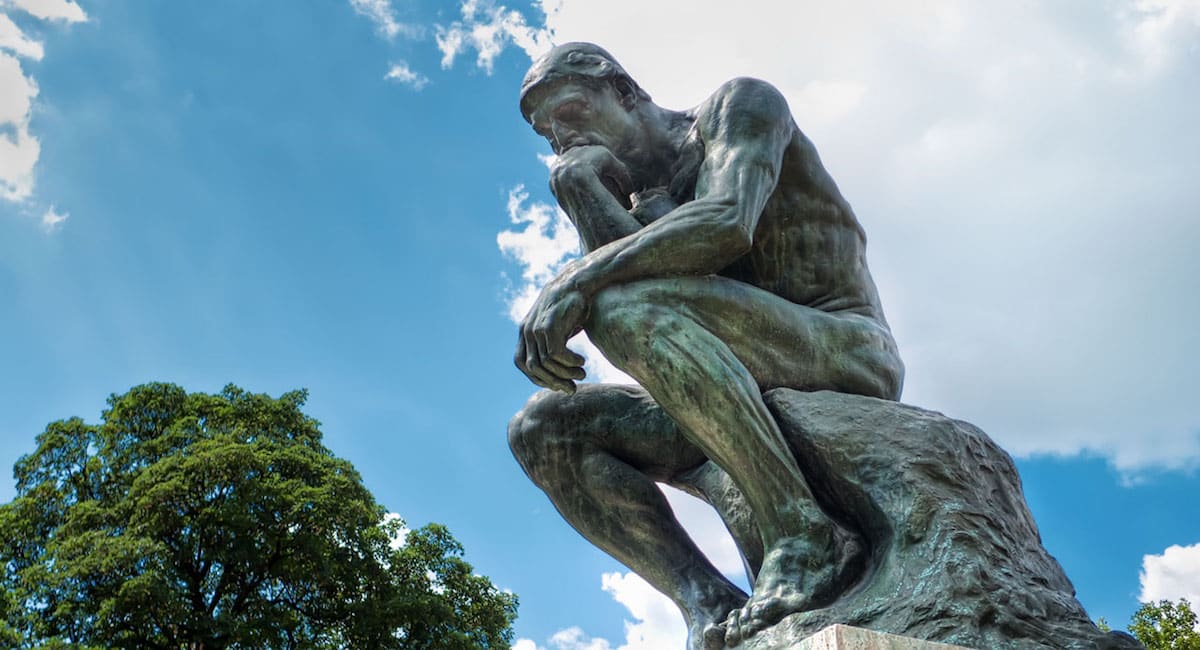 Culture & Ethics
Culture & Ethics
 Evolution
Evolution
 Faith & Science
Faith & Science
Smart People Are Less Able to Detect Their Own Bias — Evolutionary Psychologist

Here’s an article at Live Science with a headline that at first hearing makes it sound ripe for mockery:
It reminds me of this one, pointed out by Doug Axe:
Gotta love neutral headlines like this: “Less-educated Americans more likely to believe in creationism.”https://t.co/VmynnnoTlm
— Douglas Axe (@DougAxe) May 24, 2017
But there’s an interesting find embedded there. Evolutionary psychologist Edward Dutton at the Ulster Institute for Social Research wanted to know why atheists, disproportionately, are smart. He and co-author Dimitri Van der Linden reported their findings in the journal Evolutionary Psychological Science (“Why is Intelligence Negatively Associated with Religiousness?”).
Dutton set out to find [the] answer, thinking that perhaps it was because nonreligious people were more rational than their religious brethren, and thus better able to reason that there was no God, he wrote.
But “more recently, I started to wonder if I’d got it wrong, actually,” Dutton told Live Science. “I found evidence that intelligence is positively associated with certain kinds of bias.”
For instance, a 2012 study published in the Journal of Personality and Social Psychology showed that college students often get logical answers wrong but don’t realize it. This so-called “bias blind spot” happens when people cannot detect bias, or flaws, within their own thinking. “If anything, a larger bias blind spot was associated with higher cognitive ability,” the researchers of the 2012 study wrote in the abstract.
…
If intelligent people are less likely to perceive their own bias, that means they’re less rational in some respects, Dutton said. So why is intelligence associated with atheism?
Dutton’s answer in a nutshell:
The question about why more intelligent people tend to be atheistic dates back to the times of Romans and Ancient Greeks. The link between intelligence and religion can be explained if religion is considered an instinct, and intelligence the ability to rise above one’s instincts.
That doesn’t make sense. If smart people are more biased, thus less rational, how do they manage so wonderfully to rise above biases instilled by instinct? It also fails the test of experience. Talking to real live atheists suggests that few have struggled to use their intellect to break free of religion. Anecdotally speaking, knowing little or nothing about religion in the first place correlates strongly with atheism. For confirmation, see atheist biologist Jerry Coyne’s blog, Why Evolution Is True.
The much more typical story hinges on negative youthful experiences of religion in its harsh and judgmental or childish and intellectually unsatisfactory mode – that, or simply going unexposed to faith. The latter is the European experience. If religion is an instinct, rather than something more like a muscle, why does it atrophy in a culture from lack of use?
But the point about smarties being unable to detect their own biases, even more so than less cognitively gifted people, rings true.
Live Science reporter Laura Geggel quotes from the abstract of a 2012 journal article, “Cognitive sophistication does not attenuate the bias blind spot.” It says in full:
The so-called bias blind spot arises when people report that thinking biases are more prevalent in others than in themselves. Bias turns out to be relatively easy to recognize in the behaviors of others, but often difficult to detect in one’s own judgments. Most previous research on the bias blind spot has focused on bias in the social domain. In 2 studies, we found replicable bias blind spots with respect to many of the classic cognitive biases studied in the heuristics and biases literature (e.g., Tversky & Kahneman, 1974). Further, we found that none of these bias blind spots were attenuated by measures of cognitive sophistication such as cognitive ability or thinking dispositions related to bias. If anything, a larger bias blind spot was associated with higher cognitive ability. Additional analyses indicated that being free of the bias blind spot does not help a person avoid the actual classic cognitive biases. We discuss these findings in terms of a generic dual-process theory of cognition.
This does match with much personal experience. That includes our own here trying to explain to one science or education reporter after another the difference between intelligent design and creationism, or what academic freedom legislation does. Smart folks though they are, they are incredibly resistant to understanding.
Dr. Axe’s own book, Undeniable, illuminates the scientific basis behind the intuition of intelligent design in biology. Yet some of the smartest people you know, I’d bet, would have the hardest time overcoming the prejudice (“what it means for someone like me to be a smart person”) against taking that intuition seriously.
These are intelligent men and women. Yet the bias instilled by their social peers is so powerful in many cases that it cannot be overcome. Perhaps it’s something about high intelligence that itself results in the inability to see or hear what’s right in front of your face, if it conflicts with what your biases are telling you, what you think should be true if your picture of the world is to be maintained. It’s like belonging to a caste from which you can escape only by stealing away at night in secret.
Sometimes, very articulate and knowledgeable individuals are imprisoned by their own fixed ideas. Richard Dawkins, with no sense of irony, called them “brights.” Not infrequently, you can explain to someone a little less brilliant something that the “bright” strangely cannot acknowledge, just cannot hear.
There may be a sociological reality at work. Smart people are largely socialized in the setting of universities that are brain-washing factories for a certain worldview. But the dynamic also transcends ideology. Geggel gives an illustration from the 2012 study that has to do with a math problem, totally uninflected by ideology, posed to college students.
Human beings are fascinating, aren’t they?
Photo credit: Joe deSousa via Flickr.
